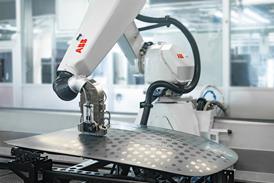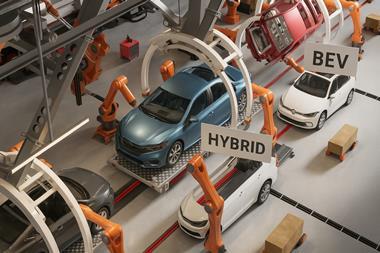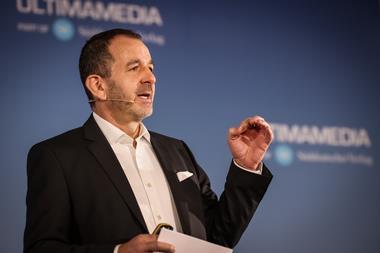Fiat is building its most modern manufacturing plant in Brazil and will establish automotive production in a new area of the country.
The OEM is investing 4.5 billion reais ($2 billion) in Brazil to build a new manufacturing facility at Goiana, in Pernambuco. The plant will have an initial production capacity of 250,000 vehicles per year and operations are anticipated to start in early 2015. According to Sudene, the Northeast Development Superintendence, the total investment is expected to reach 7 billion reais, with additional investments from components and systems suppliers that will also establish facilities at the industrial complex.

Complementing the operation that Fiat has at Betim, in the state of Minas Gerais (which has been producing vehicles for 35 years) the new facility at Goiana will provide engine manufacturing, training, a research and development centre and a test track. It will also enable the exchange of components and services with the Minas Gerais unit.
 With this new development Fiat is establishing production in a new area of Brazil, outside the traditional states of vehicle manufacturing. “We will have the ‘pernambucalização’ production,” says Cledorvino Belini, president of Fiat Chrysler for Latin America, stating his goal to bring the entire production process and develop a supply chain within the state.
With this new development Fiat is establishing production in a new area of Brazil, outside the traditional states of vehicle manufacturing. “We will have the ‘pernambucalização’ production,” says Cledorvino Belini, president of Fiat Chrysler for Latin America, stating his goal to bring the entire production process and develop a supply chain within the state.
The vehicle-maker intends to repeat the strategy developed at Betim and ensure that 80% of the suppliers operate within a radius of 200km of the plant, to enable the delivery of parts and systems on a JIT basis. Magneti Marelli has been named as one of 15 tier one companies that will be based at the industrial complex. The manufacturer, which belongs to the Fiat Chrysler Group, has confirmed the production of plastic components, suspension assemblies and engine exhaust systems. Fiat suggests there is the possibility of opening a second automotive industrial space in the area to established tier two companies. If this happens, Pernambuco could be home to a supply chain of more than 50 auto parts manufacturers.
The new plant will adopt the World Class Manufacturing (WCM) production system, a methodology applied globally by the group in order to eliminate waste and promote continuous improvement of quality, efficiency and safety. Within this philosophy, the project provides separate flows for people, materials and vehicles in the plant, minimum space for storage of components and a stamping area close to the body shop.
By following WCM, the company also seeks to reduce the plant’s environmental impact. This will include: a system of power generation and solar collector installations; water treatment and reuse; natural lighting inside the facility; and a paintshop featuring low-emission technology.
When presenting the project in 2011, Belini highlighted that the company was “initiating, formally, a new phase in the 35 years of Fiat’s history in Brazil, while we helped to build an important stage in the development ofPernambuco.” He also indicated that the company and the State of Pernambuco have established a “lasting, productive and transforming relationship, which will benefit the whole economy and society.”
Starting from zero on a new automotive hub brings a lot of challenges, but also some benefits. To compensate for the difficulty in finding skilled labour and the necessary investment in training, the labour negotiations in areas with no industrial tradition are usually more straightforward, with less pressure from unions. It’s estimated that the new plant will employ around 4,500 people.
The location also offers good logistics, being close to Porto de Suape, the largest public port in the country, linked to more than 160 ports in Africa, Europe and North America. The Pernambuco area known as Mata Norte will also house a new logistics centre with the construction of a port, roads and airport. The decision to locate in the area took into account an economic development plan announced by the state, with the intention of attracting investors and stimulating industrialisation. With this programme, vehicle manufacturers have been encouraged to locate there with tax incentives and exemptions.
 This is a strategic project for Fiat to ensure the brand sustains its sales leadership in the Brazilian market. The new industrial complex is the largest project within the company’s 15 billion real Brazilian l investment plan. This package provides resources for various companies within the group, such as CNH (agricultural machinery), FPT (diesel engines) and Magneti Marelli automotive parts. In the truck division (Iveco) the investment included the construction of a production plant for defence vehicles, inaugurated in June this year, and a plant for Magirus, which makes special firefighting vehicles.
This is a strategic project for Fiat to ensure the brand sustains its sales leadership in the Brazilian market. The new industrial complex is the largest project within the company’s 15 billion real Brazilian l investment plan. This package provides resources for various companies within the group, such as CNH (agricultural machinery), FPT (diesel engines) and Magneti Marelli automotive parts. In the truck division (Iveco) the investment included the construction of a production plant for defence vehicles, inaugurated in June this year, and a plant for Magirus, which makes special firefighting vehicles.
This investment will also be used to meet Inovar-Auto targets (see full report on p26), a new Brazilian automotive programme which offers incentives to companies that invest in research, development and increased localised production. According to Fiat’s calculations, the total invested in the domestic market could generate 7,700 direct jobs and 12,000 indirect jobs in the coming years.
That same plan will further increase the productivity of the plant in Betim, raising the production capacity from the current 800,000 units per year to 950,000 vehicles per year. Achieving greater production efficiency is a source of pride for the company. “Whenever we thought there was not enough to expand production, we found out a way to do it,” says Belini.
When the company announced the investment in Pernambuco, claiming it to be the most modern Fiat facility in the world, in late 2011, it was in a climate of global economic contraction and idle production capacity in Europe. This underlined the importance of Brazil as one of the main global markets for the Italian brand and foundation of the group’s internationalisation plan. The manufacturer’s choice of Stefan Ketter to take charge of the Pernambuco project proved the importance of this investment. The executive, who is global head of Fiat Chrysler Manufacturing, was appointed in June this year to lead the evolution of the unit.
 Since the announcement of the new manufacturing location, Fiat has been reluctant to reveal details about the appointment of suppliers and new vehicles that will be manufactured there. Asked to comment, the company’s press office in Brazil said there was no spokesperson authorised to speak about the new plant in Pernambuco due to the “strategic advantage of the project”.
Since the announcement of the new manufacturing location, Fiat has been reluctant to reveal details about the appointment of suppliers and new vehicles that will be manufactured there. Asked to comment, the company’s press office in Brazil said there was no spokesperson authorised to speak about the new plant in Pernambuco due to the “strategic advantage of the project”.
This reluctance to reveal any details regarding Fiat’s plans may also be a way to keep potential Chrysler production plans confidential. This brand’s vehicles are imported and sold in the Brazilian market, but there has been speculation that the company will localise the production of some models at Pernambuco. In late 2011, Luiz Tambor, manager of sales and marketing at Chrysler in Brazil, admitted that the company should develop a vehicle to meet the Brazilian market. No group executive has talked about it again.
For the Fiat brand, it is expected that production will include a totally new compact as a brand entry car. This would replace the outdated Mille, which will be discontinued in 2014 because it will not be able to meet new safety legislation which comes into force in January next year, requiring all vehicles sold in the country to be equipped with airbags and ABS as standard. Speculation also points to the possibility of the new plant becoming the production centre for mid-size vehicles (SUVs), as currently the company does not manufacture any models for this segment in Brazil.






































